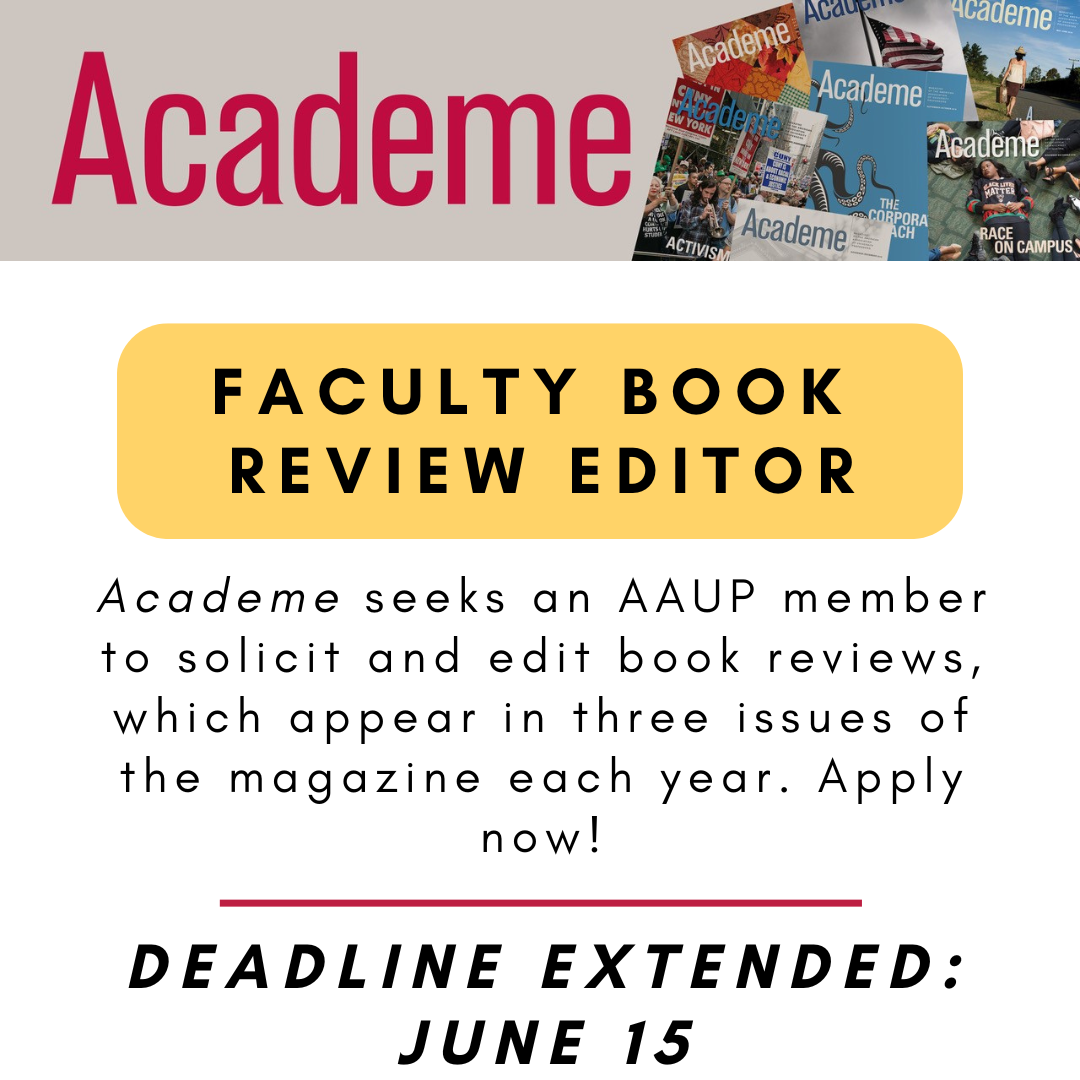- About
- Programs
- Issues
- Academic Freedom
- Political Attacks on Higher Education
- Resources on Collective Bargaining
- Shared Governance
- Campus Protests
- Faculty Compensation
- Racial Justice
- Diversity in Higher Ed
- Financial Crisis
- Privatization and OPMs
- Contingent Faculty Positions
- Tenure
- Workplace Issues
- Gender and Sexuality in Higher Ed
- Targeted Harassment
- Intellectual Property & Copyright
- Civility
- The Family and Medical Leave Act
- Pregnancy in the Academy
- Publications
- Data
- News
- Membership
- Chapters
Legal Watch: Professors Challenge Censorship at the University of Florida
Several professors at the University of Florida have filed a federal lawsuit alleging that the university administration and governing board violated the First Amendment when it restricted their participation in legal challenges to controversial state voting laws and an antimask executive order imposed by Governor Ronald DeSantis. The case, Austin v. University of Florida Board of Trustees, raises important issues concerning the constitutional right of public university professors to speak on matters of public concern.
In October, UF barred three political science professors from testifying as expert witnesses in a lawsuit challenging Senate Bill 90, a Florida law supported and signed by DeSantis that imposes a host of limitations on the ability of voters to cast ballots. The professors had planned to testify in support of the plaintiffs on topics related to their academic expertise, including the history of voting discrimination against minorities, the use of mail-in and in-person early voting in Florida, and the impact of voting by mail on minority groups. In accordance with UF policy, the professors requested the university’s permission to participate in the suit. The university had permitted such participation in the past, but this time it denied the professors’ requests.
The administration initially told the professors that it had denied their requests because their involvement in the suit would be “adverse” to the university’s interests and would “create a conflict.” However, UF is not a defendant in the voting-rights lawsuit and has no role in the enforcement of the voting restrictions being challenged in that case. The administration nonetheless stated that the professors’ involvement would “pose a conflict of interest” to Florida’s “executive branch”—presumably meaning the governor and other state officials charged with implementing the voting restrictions—and would therefore adversely affect UF’s interests as a state university. In so doing, the administration invoked a policy that gives the university “sole discretion” to determine whether faculty members are engaging in any outside activities that “could create an actual or apparent” conflict of interest. After the university’s action came to public attention and various organizations, including the AAUP, issued statements denouncing its conduct, UF backtracked, stating that the professors could testify in the suit so long as they did so in their personal capacities, did not use university resources, and were not compensated for their work on the case.
Objecting to these restrictions, the professors subsequently filed suit against UF in federal district court. Joining them as plaintiffs are three additional UF faculty members: two law professors whom the university had prevented from listing their institutional affiliation in an amicus brief supporting a challenge to another set of voting restrictions enacted by the state and a professor in the UF College of Medicine whom the university blocked from testifying as an expert witness in a suit challenging DeSantis’s executive order banning public schools from requiring masks.
In their suit, the plaintiffs argue that UF violated the First Amendment by restricting their participation in these lawsuits based on their viewpoint and by imposing a prior restraint by requiring them to obtain permission before engaging in speech. The plaintiffs also maintain that UF’s conflict-of-interest policy violates the First Amendment because it gives the university unbridled discretion to suppress speech it disfavors.
The US Supreme Court has long recognized that, under the First Amendment, the state cannot restrict public employees—including professors at public universities like UF—from engaging in speech as citizens on matters of public concern unless it has a valid and sufficiently compelling countervailing interest. The state’s burden is especially demanding when its restrictions arise from the particular view or message expressed by the speaker (viewpoint discrimination) or create a regulatory framework that amounts to a prior restraint on speech. The professors’ complaint makes a compelling case that UF’s actions and policy violate these principles. Inasmuch as the university restricted the professors’ speech because they opposed the state’s position in the lawsuits, there is a strong argument that the restriction is presumptively unconstitutional. Furthermore, the university’s shifting justifications for the restrictions cast serious doubt on the legitimacy of its supposed interests in suppressing the speech.
UF’s actions are just one example of the many recent partisan political attacks launched against professors and the integrity of the higher education system, but they should trouble anyone concerned with the future of academic freedom and the preservation of important First Amendment rights for college and university faculty members.
Edward Swidriski is assistant counsel at the AAUP.





